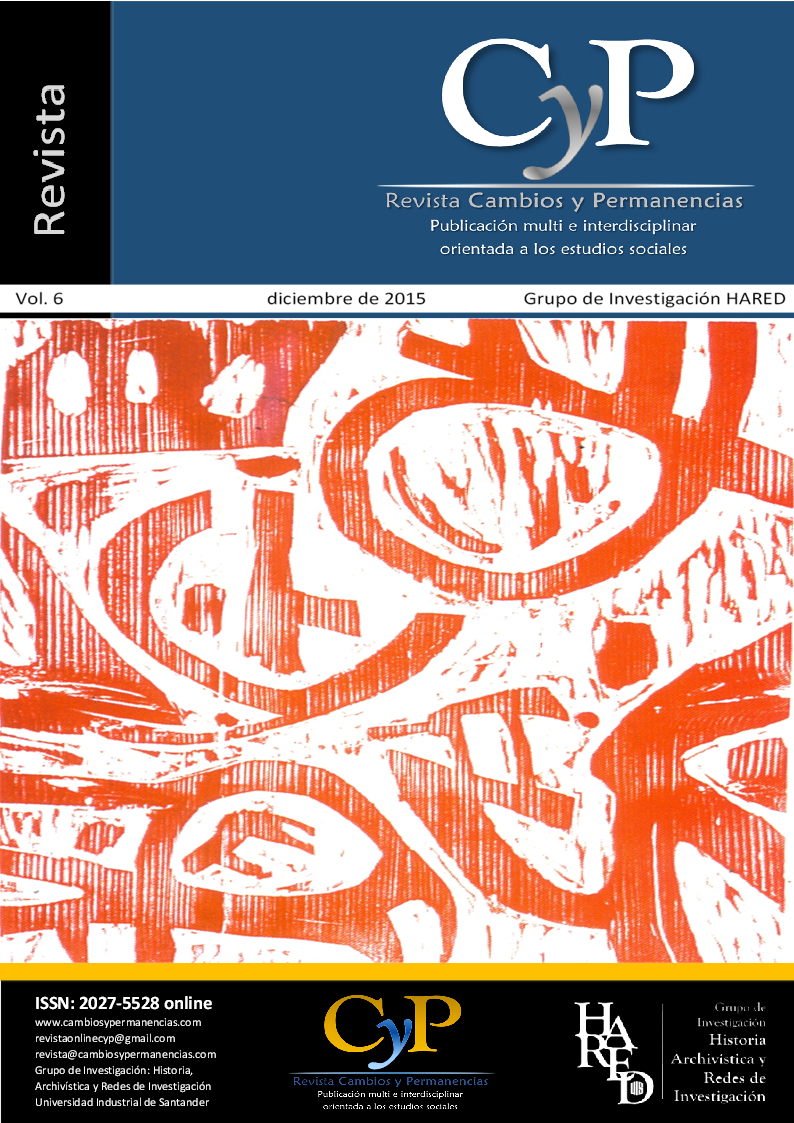From the stages to the unions - The actors’ unionization in Río de Janeiro and Buenos Aires between 1930 - 1945
Keywords
- artist,
- work,
- transnationalidad,
- labor class
How to Cite
Abstract
This article deals with the issues of the world of work by artists who mobilized on the Argentina Association of Actors and the Casa dos Artistas between 1930 and 1945. Currently the two institutions unions class artists did in their countries (Argentina and Brazil). The objective of this article is to think relationships of these associations with the transformation of the artist's identity in the 1940s marked position as artist-worker. I argue that the identification of the artist with the world of work and their questions had transnational nature, once it was cleared of intense dialogue and international exchange by means of field trips, and radio broadcasts of international cinema. This research is located in the new field of social work history and is very involved with the question of transnationality.
Downloads
References
Bomeny, H. (2001). Constelação capanema: intelectuais e políticas. Río de Janeiro: Fundação Getulio Vargas.
Capelato, M. H. (1998). Multidões em cena: propaganda política no varguismo e no peronismo. Campinas, São Paulo: Papirus.
Fausto, B. (1997). A revolução de 1930. História e historiografia. São Paulo: Companhia das Letras.
Fortes, A. (2004). Nós do quarto distrito: a classe trabalhadora porto-alegrense e a Era Vargas. Río de Janeiro: Grammond.
French, J. (2001) Afogados em leis: a CLT e a cultura política dos trabalhadores brasileiros. São Paulo: Fundação Perseu Abramo.
González, C. (2012). Gente de teatro. Ocio y espectáculos en la Buenos Aires de los años veinte. Buenos Aires: Siglo Veintiuno.
Hobsbawm, E. (1988) A era dos impérios (1875 – 1914). Río de Janeiro: Paz e Terra.
Karush, M. B. (2013) Cultura de clase. Radio y cine en la creación de una Argentina dividida (1920-1946). Buenos Aires: Ariel.
Klein, T. (1988). Una historia de luchas: la Asociación Argentina de Actores. Buenos Aires: Ediciones Asociación Argentina de Actores.
Linden, M. van den (2008). Workers of the world: essays toward a global labor history. Leiden: Brill Academic Pub.
Romero, L. A. (2002). A history of Argentina in the twentieth century. University Park: Pennsylvania State University Press.
Sarlo, B. (2004). La imaginación técnica: sueños modernos de la cultura argentina. Buenos Aires: Nueva Visión.
Siegel, M. (2009). Uneven Encounters: Making Race and Nation in Brazil and the United States. Durham: Duke University Press.
Süssekind, F. (1987). Cinematógrafo de letras: literatura, técnica e modernização no Brasil. São Paulo: Cia das Letras.
Thompson, E. P. (1987). Formação da classe operária inglesa. São Paulo: Paz e Terra.
Thompson, E. P. (1987). Senhores e caçadores. A origem da lei negra. Río de Janeiro: Paz e Terra.
Veras, F. R. (2014). Tablado e palanque. A formação da categoria profissional dos artistas no Río de Janeiro (1918 – 1945). Saarbrücken: Novas Edições Acadêmicas.
Artículos
French, J. (2011). Another world history is posible: reflections on the translocal,
transnational, and global. En L. Fink. (Ed.). Workers across of America. The transnational turn in labor history (pp. 3-11). New York: Oxford University Press.
Hobsbawm, E. (2005). ¿Qual o país dos trabalhadores? En E. Hobsbawm (Ed.). Mundos do trabalho. Novos estudos sobre história operária (pp. 79-89). São Paulo: Paz e Terra.
Kerber, A. (2009). Representações regionais em Carlos Gardel e Carmen Miranda. Estudos Históricos, 22 (44), 377-39.
Oliveira, L. L. (2001). O intelectual do DIP: lourival fontes e o Estado Novo.
Savage, M. (2004). Classe e história do trabalho. En C. Batalha, H. M. Silva,
F. Teixeira da. y A. Fortes. (Eds.). Cultura de clase (pp. 25-48). São Paulo: Unicamp.
Siegel, M. (2005). Beyond compare: comparative method after the transnational turn. Radical History Review, (91), 62-90.
Velloso, M. P. (2003) O boêmio e o militante. En J. Peregrino (Ed.). A história se escreve nas paredes (Vol. 1). Río de Janeiro: Petrobrás.
Wisnik, J. M. (1971). Getúlio da paixão cearense (Villa - Lobos e o Estado Novo). [Música] O nacional e o popular na cultura brasileira (pp. 129-191). São Paulo: Brasiliense.
Documentación Primaria
Archivo de la Cancellería Argentina
Argentores
Asociación Argentina de Actores
Biblioteca Nacional – Brasil
Biblioteca Nacional – Argentina
Funarte – RJ
Museu da Imagem e do Som - RJ

